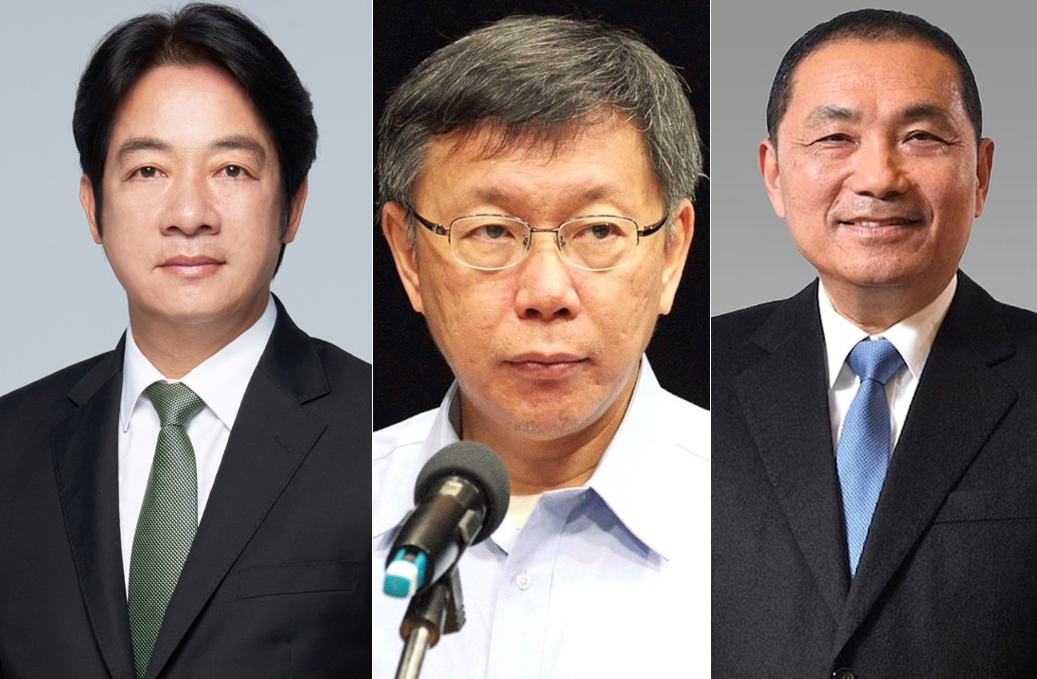No agreement on common candidate: three-way race for the presidency in Taipei
The agreement between the Kuomintang and the new party of former mayor Ko Wen-je announced just a few days ago has evaporated. This outcome will favour current vice-president Lai Ching-te in the crucial 13 January vote. Foxconn tycoon Terry Gou, trailing in the polls and targeted by Beijing that wanted a united opposition front, dropped out of the race.
Taipei (AsiaNews) - The alliance announced just a few days ago between the two main opposition forces - the historic Kuomintang (today with pro-People's Republic of China positions) and the party of former Taipei mayor Ko Wen-je - has disappeared when faced with the issue of the name of the common presidential candidate in the January 13 elections.
After a final tense confrontation between the leaders and Foxconn tycoon Terry Gou - which took place yesterday in a hotel and was broadcast live on Taiwanese TV - today, on the last available day, the two parties filed Hou Yu's separate candidacies. ih for the Kuomintang and Ko Wen-je for the new Taiwan People's Party.
However, Terry Gou will not show up, having announced his candidacy months ago, proposing himself as a catalyst for the opposition to the Democratic Progressive Party which governed the island for eight years with President Tsai Ing-wen and which for the vote on 13 January the current vice-president Lai Ching-te nominates.
Gou - whose company is Apple's main supplier - presented himself as an independent candidate but never took off in the polls. He also had to deal with a tax investigation launched by Beijing last month against Foxconn. A move read by many analysts as a signal against his candidature by the People's Republic of China, which would have further divided the opposition in Taiwan. In the end, therefore, Terry Giu chose not to run and sent signals in favour of Ko Wen-je's race.
The alliance between the Kuomintang and the Taiwan People's Party would have put the outcome of the January vote into strong question. Currently, the polls see Lai Ching-te in the lead with around 30% of the vote, followed by Ko Wen-je and Hou Yu-ih, both of whom are around 20%, while Terry Gou was given below the 10% mark. Now it will have to be seen how voters will reposition themselves when faced with the prospect of a three-way race.
But Lai Ching-te's margin is wide and he is given as favourite. Moreover, the whole affair of the agreement and its management may have weakened the image of Ko Wen-je, who presented himself as the alternative candidate to the two historical contenders, with the ambition of taking Taipei out of the increasingly heated clash between autonomists and pro-Beijing forces.
The agreement reached last week between the Kuomintang and the Taiwan People's Party provided that the presidential candidate would be chosen on the basis of the results of some polls commissioned by various survey companies.
At the moment of truth - contrary to the trend noted previously - the response was in favor of the Kuomintang candidate, who had appeared to be in serious crisis throughout the electoral campaign. At that point the former mayor of Taipei called into question the methodology and the margin of error. Until the last confrontation yesterday, which was broadcast live on TV.
23/01/2023 15:38
12/01/2024 18:35
13/01/2024 15:27







.png)










